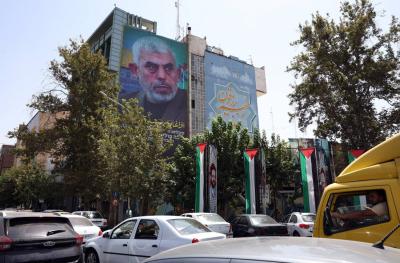On June 18, 1914, the heir to the Austro-Hungarian Empire, Archduke Franz Ferdinand, was assassinated in Sarajevo, Bosnia and Herzegovina, which was then part of the empire. His assassination was the direct cause of the outbreak of World War I. This occurred through a series of military mobilizations in Vienna to prevent the possibility of Serbia launching an attack on Bosnia, which was under the Habsburg family that led the empire. The declaration of mobilization in Austria led Serbia to declare a general mobilization as well; to support the empire, Germany also declared a general mobilization. Thus, the contagion of mobilization spread to Russia, France, Britain, and the Ottoman Empire. Fearing that each party would lose the virtue of military initiative, it took just a single shot for war to ignite, resulting in 60 million casualties and the subsequent collapse of all empires. The situation was that it was impossible to manage a multilateral international scenario, each party having its finger on the trigger without the tension at least leading to the firing of the first shot, after which the world ignited, or in our case, the Middle East, where war is already ongoing—specifically, the fifth Gaza War. However, there is another war characterized by the "unity of the fields" among Hezbollah in Lebanon, the Houthis in Yemen, the Popular Mobilization Forces in Iraq, and multiple parties in Syria—all of whom are alongside Israel, supported by the United States.
The picture in the Middle East was not missing an assassination; it is an inherent part of the war process in the region. In this case, the archduke was replaced by the Hamas leader Ismail Haniyeh, who was assassinated in Tehran during the celebration of President "Bejishkian" assuming office after the killing or assassination of his predecessor, Ibrahim Raisi. Concurrently with the assassination in the Iranian capital, Fouad Shukr, the military leader of Hezbollah, was also assassinated in the party's suburb in Beirut. There was no doubt that Israel was behind both assassinations; since then, statements have emerged that significant costs would be imposed on Israel for the crimes it had committed.
And so, mobilizations commenced in Iran and all types of fighting militias in the region, as did Israel. There was no doubt that the chain of World War I had reached the Middle East after more than a hundred years. When this article was written days ago, the headline of the renowned Al-Ahram newspaper read, "Israel Prepares for an Iranian Attack Before Thursday"; and this was not just Al-Ahram's headline, but similar headlines were prevalent in newspapers worldwide, leading the news bulletins.
War was knocking on the doors of the Middle East. It was not lost that Israel, through the assassination, wanted to lure Iran into a war where Israel could dispose of the nuclear threat, as it had previously done with Syria and Iraq. However, Iran and its affiliates now possess various missiles, different drones, and military capabilities extending from the Gulf to the Red Sea and even the Mediterranean Sea.
When the book of war is opened, no one knows when it reaches the last page; thus, there was no avoiding other parties trying to prevent the war. Egypt and Qatar, with support from the United States and Arab countries, aimed towards achieving the promised truce in the Gaza War, seemingly giving Tehran a window to exit from it. If the fighting in Gaza stopped, there would be no need to wage war elsewhere.
Washington followed a strategy primarily based on deterrence through a massive military buildup, represented by an additional aircraft carrier, the "Abraham Lincoln," carrying the best that the American war arsenal has produced in terms of aircraft and drones; alongside it, military expertise convoys from the Pentagon were sent to the Middle East.
In addition to deterrence, diplomacy was pursued. As much as it gained support from European countries—Britain, Germany, France, and Italy—to weigh their fleets and aircraft in the balance, it also secured full backing for the diplomatic process to halt the fire in Gaza, giving Tehran the opportunity to postpone its revenge for another day.
Never in the history of the Middle East have breaths and gazes focused on any matter other than whether war will break out or not; whether it will escalate or not; and whether at the critical moment it will be the key to hell or paradise. Such moments, on the other hand, offer the direct parties the chance to manipulate the situation to improve negotiating terms or to settle unresolved accounts. In any case, it is a pivotal moment.




